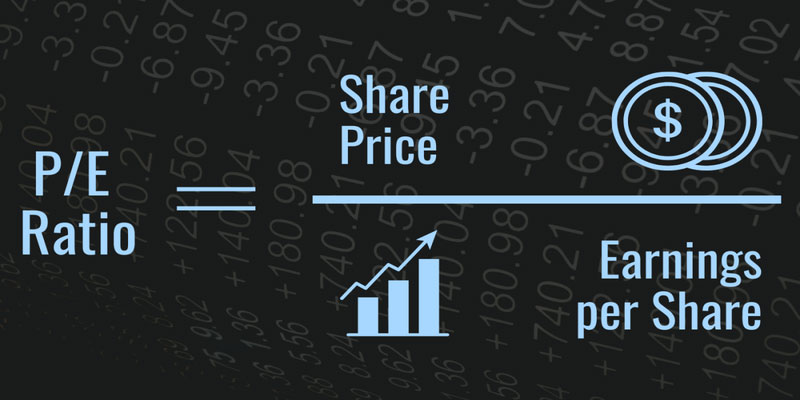Ever felt like the stock market is a maze of uncertainty, where prices fluctuate unpredictably, leaving investors bewildered? Welcome to the world of stock market manipulation. It's the covert hand guiding the market's movements, often for personal gain at the expense of others. But what exactly does it entail, and how does it impact everyday investors? In this article, we'll unravel the complexities of stock market manipulation, delving into its causes, effects, and strategies for prevention. So, fasten your seatbelt as we embark on a journey to demystify this clandestine force shaping the financial landscape.
Understanding Stock Market Manipulation
Stock market manipulation is like the behind-the-scenes puppeteering of the stock market. It's when someone intentionally interferes with the natural forces of supply and demand to distort prices and deceive investors. Imagine a group of investors spreads untrue stories about a company to make its stock price drop. Then, they buy the stocks at a lower price and sell them for a profit when the truth is revealed. That's just one example of market manipulation in action.
Causes of Stock Market Manipulation
Stock market manipulation doesn't happen by chance; specific motives and tactics often drive it. Here are some of the reasons behind this deceptive practice:
Greed
One of the most prevalent motives behind stock market manipulation is simple greed. Certain individuals or groups engage in manipulation to line their pockets with quick profits, even if it means exploiting others. They might artificially inflate the price of a stock they already own, hoping to sell it at a higher price, or they may drive down the price of a stock they intend to buy more of, all in the pursuit of maximizing their gains.
Misinformation
In today's interconnected world, false information can spread rapidly, especially through social media platforms. Manipulators capitalize on this by spreading rumors, fake news, or even creating fake accounts to sway market sentiment in their favor.
Market Control
Some entities seek to manipulate the market to gain control or dominance over particular stocks or sectors. By artificially influencing prices, they can assert their influence and control over market dynamics, potentially to the detriment of other investors.
Speculative Gain
Speculators may engage in manipulation to profit from short-term fluctuations in stock prices. They may create false perceptions of market trends or artificially inflate demand for a stock to drive up its price, allowing it to sell at a profit before the truth is revealed.
Market Reaction
Manipulators may exploit market reactions to external events or news. By strategically timing their actions to coincide with significant announcements or developments, they can amplify market volatility and capitalize on investors' emotional responses for their gain.
Insider Trading

In some cases, individuals with access to privileged information may manipulate the market for personal gain. This unethical practice, known as insider trading, involves trading securities based on material non-public information, giving the perpetrator an unfair advantage over other investors.
Effects of Stock Market Manipulation
Manipulation in the stock market can have profound effects on investors and the financial system as a whole. Understanding these effects is crucial for safeguarding investments and maintaining market integrity.
Erosion of Trust and Confidence: Stock market manipulation shakes the foundation of trust and confidence in the financial system. When investors perceive the market as rigged, they may hesitate to participate, leading to reduced trading activity and liquidity.
Financial Losses for Investors: Manipulation often results in unsuspecting investors facing severe financial losses. Despite conducting thorough research and making what seemed like prudent investments, they may discover later that the stock prices were artificially inflated, causing significant monetary setbacks.
Market Volatility: Manipulative activities can exacerbate market volatility, causing prices to fluctuate more intensely than usual. This heightened volatility increases uncertainty and makes it challenging for investors to accurately predict market movements, leading to potential losses or missed opportunities.
Distorted Market Fundamentals: Manipulation distorts market fundamentals by artificially inflating or deflating stock prices, creating a disconnect between a company's true value and its market valuation. This distortion can mislead investors into making decisions based on inaccurate information, ultimately undermining the efficiency of the market.
Regulatory Scrutiny and Compliance Costs: Instances of market manipulation often attract regulatory scrutiny and intervention. Companies might have to spend a lot of money to follow the rules and protect themselves from legal trouble.
Prevention of Stock Market Manipulation
Preventing stock market manipulation upfront is crucial for building trust and confidence in financial markets. Regulatory agencies and market participants must work together to implement effective strategies and safeguards.
Regulation and Enforcement: Regulatory bodies, like the Securities and Exchange Commission (SEC), monitor and investigate suspicious activities to deter manipulative behavior. Strict rules and penalties are enforced to discourage individuals from engaging in illicit activities.
Transparency and Accountability: Ensuring companies disclose relevant information promptly and accurately empowers investors to make informed decisions and reduces the likelihood of manipulation. This transparency fosters trust in the market.

Market Surveillance: Advanced surveillance technologies and algorithms are employed to detect unusual trading patterns or suspicious activities. Real-time monitoring helps regulatory bodies intervene swiftly to prevent manipulation before it escalates.
Investor Education: Educating investors about the various tactics used in manipulation and how to recognize warning signs equips them to protect themselves. Providing resources and guidance on conducting thorough research and due diligence before making investment decisions is crucial. An informed investor is less likely to fall victim to manipulation.
Conclusion
Stock market manipulation poses a significant threat to investors and market integrity. Understanding its complexities, identifying warning signs, and promoting increased transparency and regulation can help reduce its negative impact. Empowering investors with knowledge and vigilance is crucial in safeguarding against manipulation tactics.
Together, we can strive for a more equitable and trustworthy market environment where fair play prevails, and investors can confidently navigate the financial landscape. Stay informed, stay cautious, and always conduct thorough research before making investment decisions in the dynamic world of the stock market.



